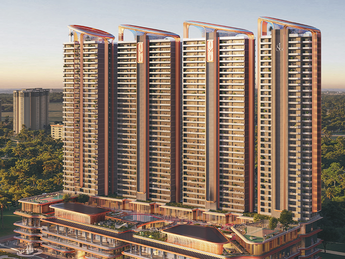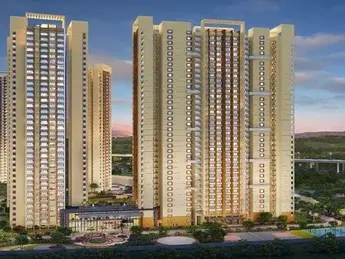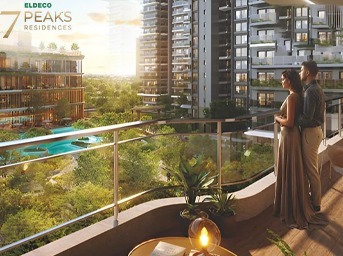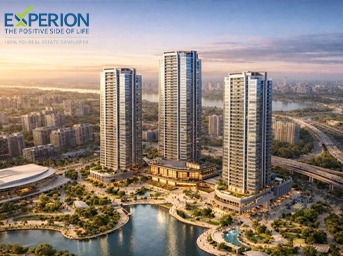Is Investing in Under Construction Property is beneficial ?
Bricksnwall Trusted Experts
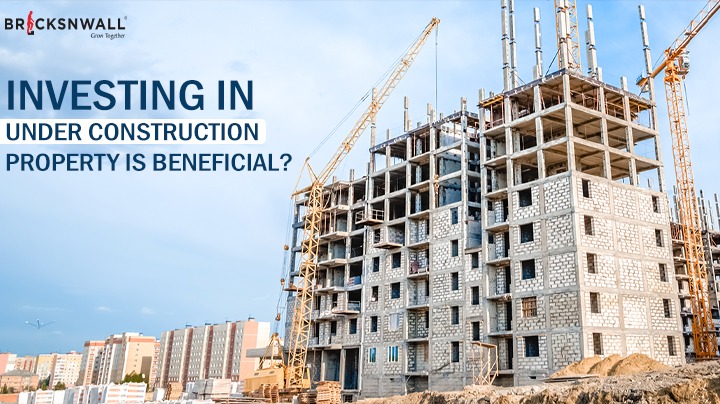
ICRA expects that by 2022, Indian companies will have raised US$ 48 billion (about Rs. 3.5trillion) through infrastructure and real estate investment trusts, compared to US$ 29 billion raised thus far. This is explained by the increase in demand for residential real estate brought about by the country's fast urbanization and rising standard of living. India is currently one of the top 10 home markets in the world for price appreciation. Despite a number of difficulties encountered during the subsequent Covid waves in previous years, the real estate industry's perception has also improved. In the middle of the real estate buying frenzy, many purchasers are increasingly leaning toward investing in buildings that are still under construction, according to White Knights Realty CEO Manik Anand.
"Buying a property that is still under construction gives buyers a lot more options than buying a finished project." Additionally, they have a wide range of possibilities from which to choose their home, whereas ready-to-move-in residences have fewer options. Your house will probably appreciate more because you are paying a much lower price for it, Manik Anand continued.
There are several reasons why individuals ought to think about purchasing an under-construction property, including:
Economical Purchase: Probably the most crucial factor for buyers is the price of the home; under-construction properties are typically far less expensive than ready-to-move-in properties for a variety of reasons. Because under-construction buildings take time to finish, the fact that an investor can reserve a property for as little as 5–10% of the total cost often ends up being the deciding factor for many. Additionally, purchasers now get an extra benefit when they reserve a unit in an under-construction project thanks to RERA.
Profitable Investment Opportunity: The anticipated appreciation is bigger because purchasing an under-construction home is less expensive. When a property is finished construction, its estimated market worth has increased; this value might change based on a number of factors, including location, nearby development, planned developments, employment prospects, and other nearby civic amenities.
Flexible Payment Options: A buyer purchasing a property that is ready to move into must pay the full sum at once. Stamp duty, registration fees, and other incidentals are also included. However, you must pay ten to fifteen percent of the total booking price at the outset of an under-construction home. If the property is financed, you pay the bank in installments; if not, you pay according to the building schedule. Many people benefit from provisions like flexible payment plans, subvention schemes, and construction-linked plans.
Easy Access to Discounts: Since the price of finished construction is fixed, it can be challenging to find any kind of deal or discount on properties that are ready to move into. Finishing touches like paint, faucets, fixtures, and other items contribute to the overall cost of the home. On the other hand, there are a number of deals and freebies available if you purchase in an under-construction complex, like free parking, a modular kitchen, an air conditioner, and gold coins. On the ultimate cost, you can also bargain.
Not withstanding these benefits, prospective purchasers of residences that are still under construction need to be mindful of a few factors. Because under-construction houses are typically found in less developed areas of the city, early buyers may occasionally find themselves stuck with their investments. After purchasing under-construction properties, several clients have encountered legal hurdles. Delays in possession are one of the most frequent problems associated with under-construction projects; frequently, this causes the project to be delayed, which impacts the buyers. Typically, the builders project a maximum 3-year timeframe to complete the building.
In the past, there have been cases where the builder displayed a model apartment complete with all the amenities and the highest caliber fixtures. But when the finished project was delivered, there were disparities because of what was promised and what was actually delivered. Nevertheless, instances of this kind are extremely uncommon and usually involve dishonest individuals acting in bad faith. A builder is not permitted to alter the approved building approval plan once it has been approved and post it online following the adoption of RERA.
In order to protect clients, RERA has also released regulations stating that builders must deliver on their commitments made throughout the contract and are not permitted to alter the approved building design after it has been approved and posted on their website.
It is imperative that prospective buyers of real estate purchase flats under construction from builders who have been approved by the state of RERA, have a solid track record, and have established projects. A builder is in charge of completing the project within the allotted time when the RERA is implemented. Should he fail to comply, he must reimburse the purchasers. Furthermore, while it's generally true that incomplete projects will be less expensive, there are some exceptions because a property's price might significantly rise with additions to manufacturing and finishing.
Primary considerations include evaluating one's personal financial status, trusting the documentation required for the purchase, and learning about the neighborhood, the developers' track record, and the surrounding infrastructure. Ultimately, a buyer needs to decide whether they are prepared to risk their money on incomplete projects and whether they would likely appreciate in value over time.
